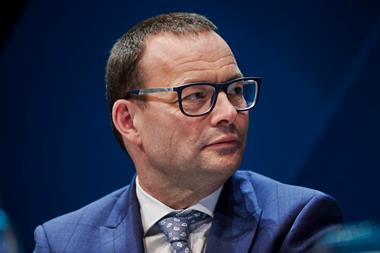The ITB Pension Funds have completed a final buy-in transaction with Just Group for £290m, insuring the benefits of its remaining members.
The £290m transaction is the fifth and final buy-in completed by the open fund, which has now fully secured all members’ benefits using a phased buy-in strategy. The trustee of the funds has been advised by LCP thorughout the process.
Newell McGuiness, trustee chair at ITB Pension Funds, said: “We have achieved our investment objective much earlier than planned through an effective investment strategy and having efficient governance in place. This is a tribute to the trustee board and its advisers.”
Pete Jennings, head of defined benefit sales at Just Group, said the transaction was “an endorsement of the high service standards” the end-to-end team at Just Group strives to offer clients before, during and after a transaction.
Sam Jenkins, partner at LCP, added: “This last transaction marks a great success story for the funds and demonstrates the effectiveness of a strategy that reduces investment and longevity risk gradually over time.”
He added that the success of each transaction has been forged from careful preparation and effective governance, ensuring the trustee was well positioned to take advantage of market opportunities as and when they arose.
Average funding and proportion of DB schemes in surplus at highest levels, Aon report shows
A recent report by consultancy Aon has found that the average funding and proportion of defined benefit (DB) schemes are at their highest levels since the start of the current funding regime set out in Part 3 of the Pension Act 2004.
According to the report, the average funding level for the period between 22 September 2021 and 31 July 2022 was 97%, with 47% of schemes being fully funded on technical provisions basis, up from 92% and 42%, respectively, for the period between 22 September 2020 to 21 September 2021.
The report, soon to be available online, added that while the average funding levels have remained relatively stable, there is a wide variation between schemes – those schemes most exposed to Gilt yield changes are likely to have improved their funding significantly.
Meanwhile, for schemes in deficit the report found that the average recovery period, of 4.3 years, was 1.2 years shorter than three years ago when many schemes’ previous valuations were undertaken. The percentage of schemes requiring a recovery plan fell from 67% to 53%.
In addition, 63% of underfunded schemes had put in place additional security – the highest percentage to date, according to the report.
The new funding regime is currently expected to be implemented in April 2024, however, the industry has recently questioned the need for an updated Funding Code amid an improved funding position of UK DB schemes.
The new funding code is expected to focus on a journey plan towards a long-term funding target, aiming to reduce reliance on the employer covenant and achieve “low dependency” as a scheme matures.
Ahead of this becoming a legislative requirement, the majority of the schemes have already set such targets – and many have also produced a journey plan setting out how to get there – in line with regulatory guidance.
In addition, the report pointed out that the initiatives announced by the chancellor in his Mansion House speech, including a call for evidence on how DB schemes could use their assets more flexibly, may support a wider range of endgame options for pension schemes and further support alternative endgames to insurer buyout.
TPT introduces new funds to enhance responsible investment choices for DC members
TPT Retirement Solutions has launched a new range of investment funds for its defined contribution (DC) members.
The new range of self-select funds is expected to provide members with a greater choice of socially responsible investment (SRI) strategies, such as a low carbon transition and positive impact investing.
TPT said the new funds launch will provide members with a range of strategies aligning with varying investment beliefs, risk appetites and financial goals.
The new funds encompass a diverse range of asset classes, including equities, bonds and infrastructure, it added.
According to TPT, its Global Impact Equity Fund focuses on four themes, including social inclusion and education, environment and resource needs, healthcare and quality of life, and financial inclusion.
The fund invests in global companies with the aim of delivering positive change across the four investment themes, it added.
It seeks to invest primarily in debt issued by companies whose products and services address specific environmental and social challenges, including improving access to basic life essentials, reducing inequality, and mitigating the effects of climate change.
Philip Smith, DC director at TPT, said: “As we understand that every individual’s retirement journey is unique, our expanded range of investment options to enable members to tailor their pension investments according to their social and environmental beliefs, specific financial objectives and risk preferences.”
Smith said the move demonstrates the ability of master trusts to offer “greater diversification and innovation” to scheme members, adding that the allocation towards impact investment is not only beneficial to members, but it can also fund projects that improve communities and the environment.
“In addition to the launch of these new funds, TPT remains dedicated to providing unparalleled member support, education, and personalised guidance,” he noted.
The latest digital edition of IPE’s magazine is now available

















